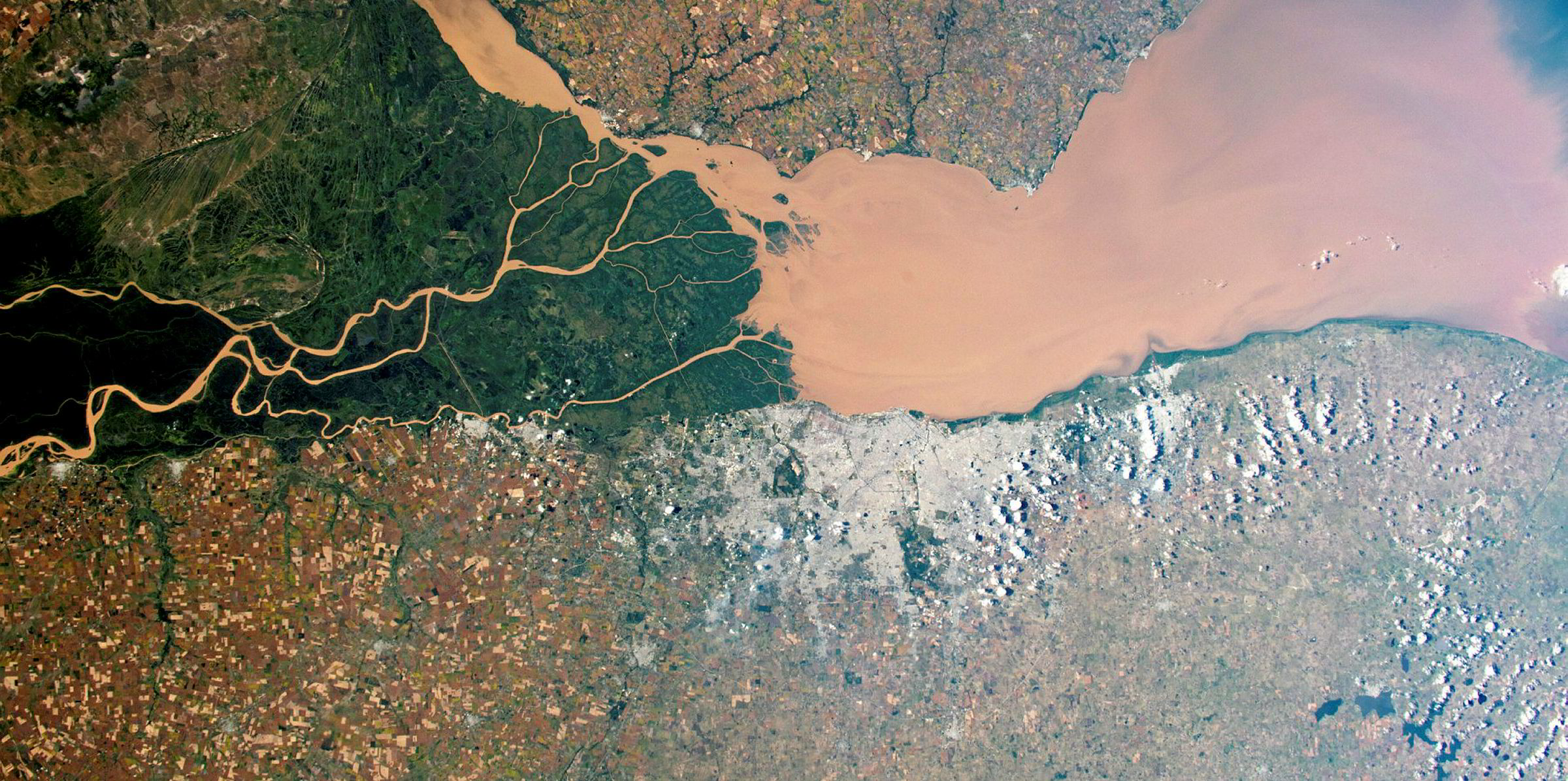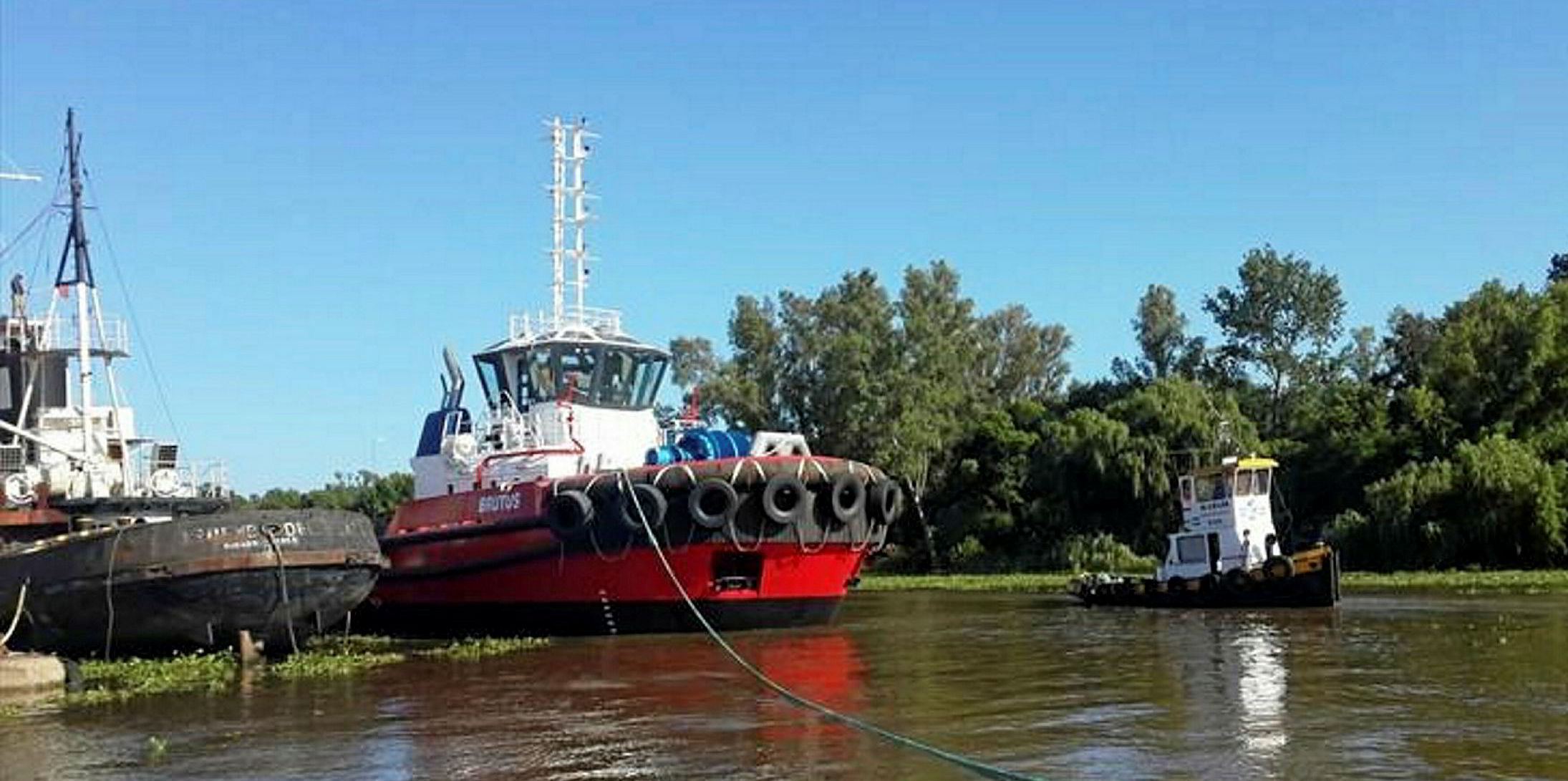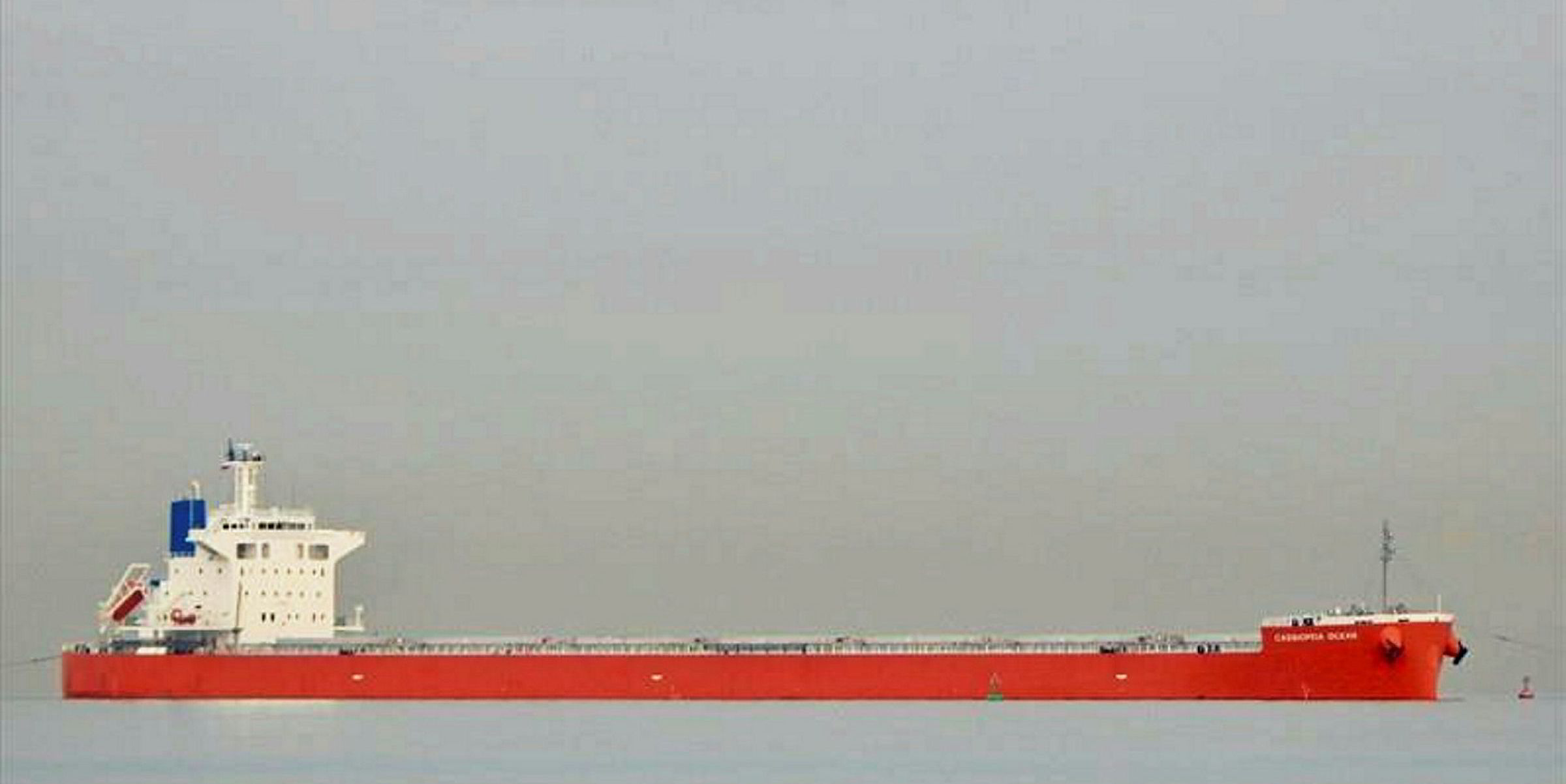Another two groundings in the Parana River have highlighted continuing safety problems in the region caused by a combination of natural silting and drought.
The incidents will come as a timely reminder to underwriters of the increasing risks in the area during the key hull and insurance renewal month of July.
The 76,000-dwt Ourania Luck (built 2000) hit a sand bank on 4 July around the central Lagos region as it was heading for Kuwait.
The vessel was fully laden with a cargo of maize loaded at San Lorenzo Port. The situation was soon resolved by Tsavliris Salvage which deployed the tug Brutus under a Lloyd’s Open Form contract.
The vessel appears undamaged by the incident and was able to continue its voyage two days later.
Although a fairly routine casualty traffic had to be suspended and transit later temporarily restricted to vessels with a draught of 7.3 metres or less.
In a separate incident on 6 July the 33,400-dwt Dino (built 2009) grounded downstream of Rosario Port. It is now heading for the port of Tema in Ghana according to AIS information.
Well-known problem area
The Parana River has been a well known problem area for groundings over recent years because of the long-term effects of silting and drought. But this year seems to be a particularly bad one for groundings with water levels hitting a 50-year low.
Around 14 groundings were reported in the month of May prompting loss prevention alerts from protection and indemnity insurers North P&I Club and West of England.
Loading restrictions have been put in place to attempt to reduce the number of groundings.
The attention is now turning to whether underwriters will hike rates for ships trading to the region amid the increasing cost of a surge in casualties.
July is an active month for hull and machinery insurance renewal.
Following the Ourania Luck grounding, UK law firm Roose and Partners said: “Hull and cargo underwriters alike will no doubt be looking closely at the statistics when considering insurance premiums having regard to the potential risks and the resulting exposure following such incidents, which can in some cases lead to many millions of Dollars being spent.”
The situation has also raised the prospect that unsafe port claims could now be made against the Parana River ports.






